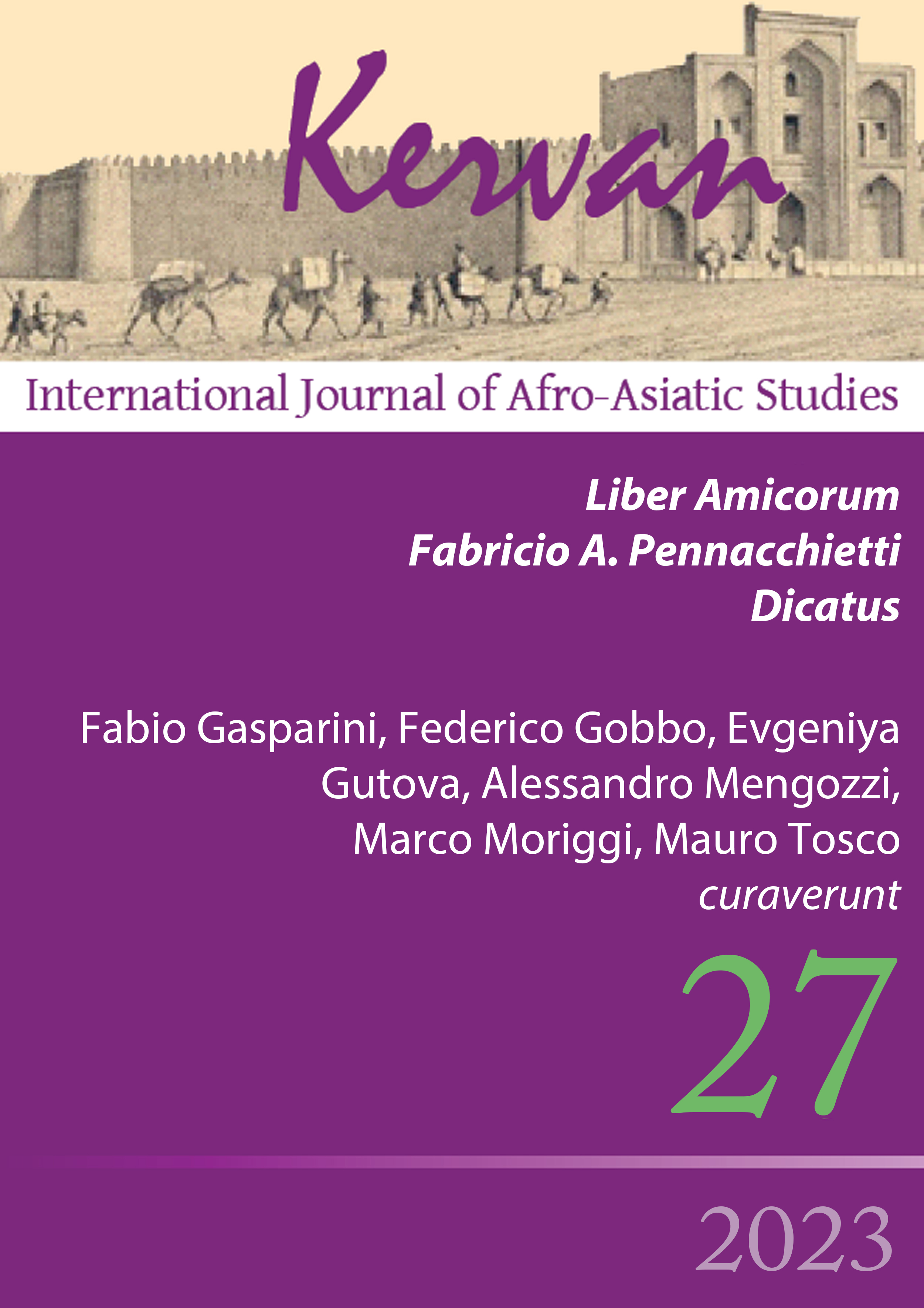Interdental consonants in North-Eastern Neo-Aramaic dialects
DOI:
https://doi.org/10.13135/1825-263X/8225Abstract
The North-Eastern Neo-Aramaic (NENA) dialects exhibit a wide range of reflexes of the historical interdental consonants *θ and *ð. These were originally post-vocalic fricative allophones *[θ] and *[ð] of the stops */t/ and */d/ respectively in earlier Aramaic. In NENA these fricative allophones have become phonemicized. The interdental realization of the consonants has been preserved mainly in dialects in the western sector of NENA. In the eastern sector the interdentals have been replaced by various other consonants or debuccalized under the influences of contact languages.
Downloads
Downloads
Published
Issue
Section
License
Gli autori che pubblicano su Kervan accettano le seguenti condizioni:
- Gli autori mantengono i diritti sulla loro opera e cedono alla rivista il diritto di prima pubblicazione dell'opera, contemporaneamente licenziata sotto una Licenza Creative Commons - Attribuzione che permette ad altri di condividere l'opera indicando la paternità intellettuale e la prima pubblicazione su questa rivista.
- Gli autori possono aderire ad altri accordi di licenza non esclusiva per la distribuzione della versione dell'opera pubblicata (es. depositarla in un archivio istituzionale o pubblicarla in una monografia), a patto di indicare che la prima pubblicazione è avvenuta su questa rivista.


 The articles that have appeared on Kervan since 2016 are rated as Class A in the system of National Scientific Qualification (ASN, disciplines 10/N1 and 10/N3).
The articles that have appeared on Kervan since 2016 are rated as Class A in the system of National Scientific Qualification (ASN, disciplines 10/N1 and 10/N3). The journal has been approved for inclusion in DOAJ. The DOAJ listing of the journal is available at
The journal has been approved for inclusion in DOAJ. The DOAJ listing of the journal is available at  The journal has been approved for inclusion in ERIH PLUS. The ERIH PLUS listing of the journal is available at
The journal has been approved for inclusion in ERIH PLUS. The ERIH PLUS listing of the journal is available at  Kervan was just accepted for indexing in SCOPUS. This important milestone ensures that articles published in Kervan are easily found when searching for library, archives and Information science and it enables Kervan authors to keep track of how often their article has been cited by others.
Kervan was just accepted for indexing in SCOPUS. This important milestone ensures that articles published in Kervan are easily found when searching for library, archives and Information science and it enables Kervan authors to keep track of how often their article has been cited by others.

